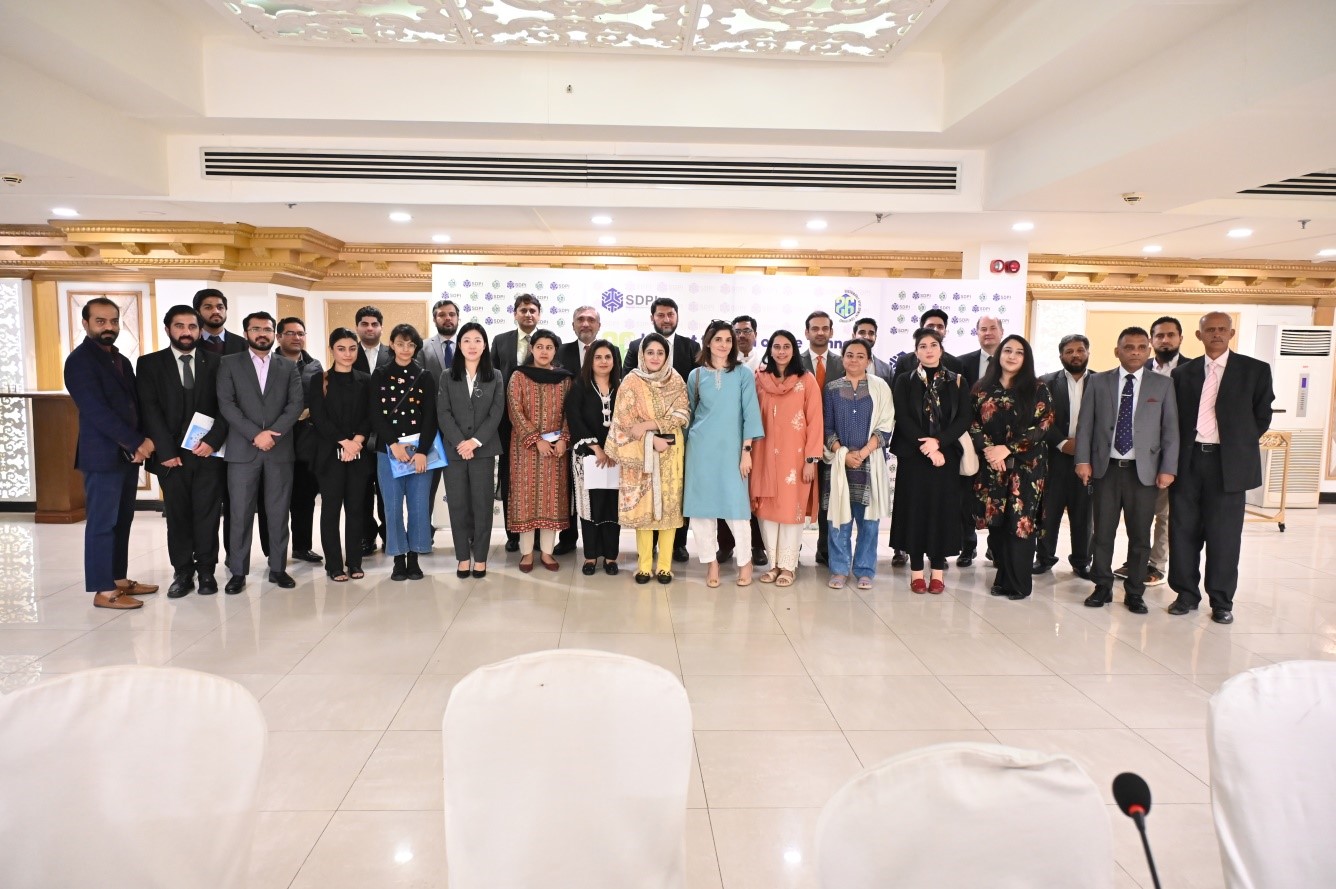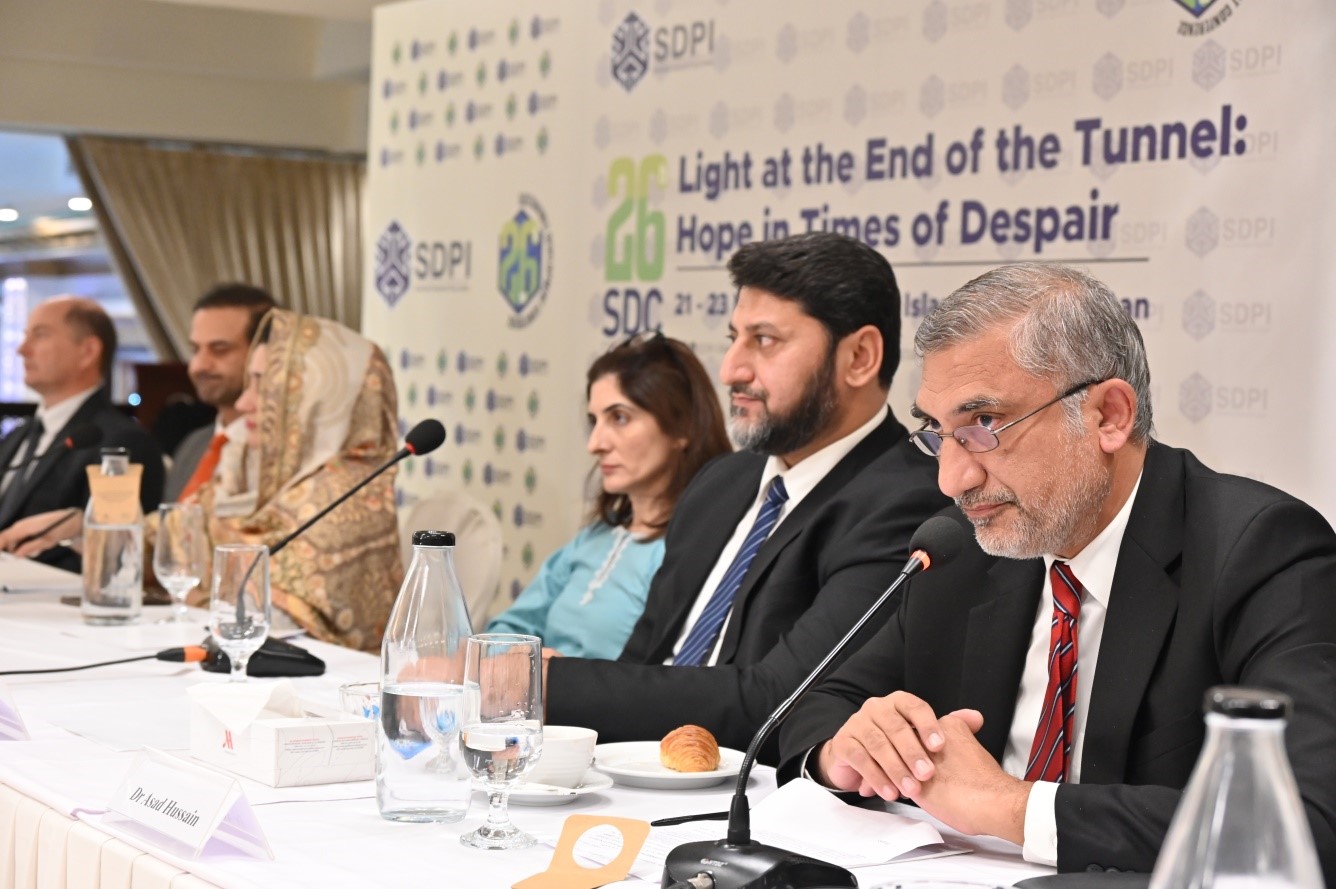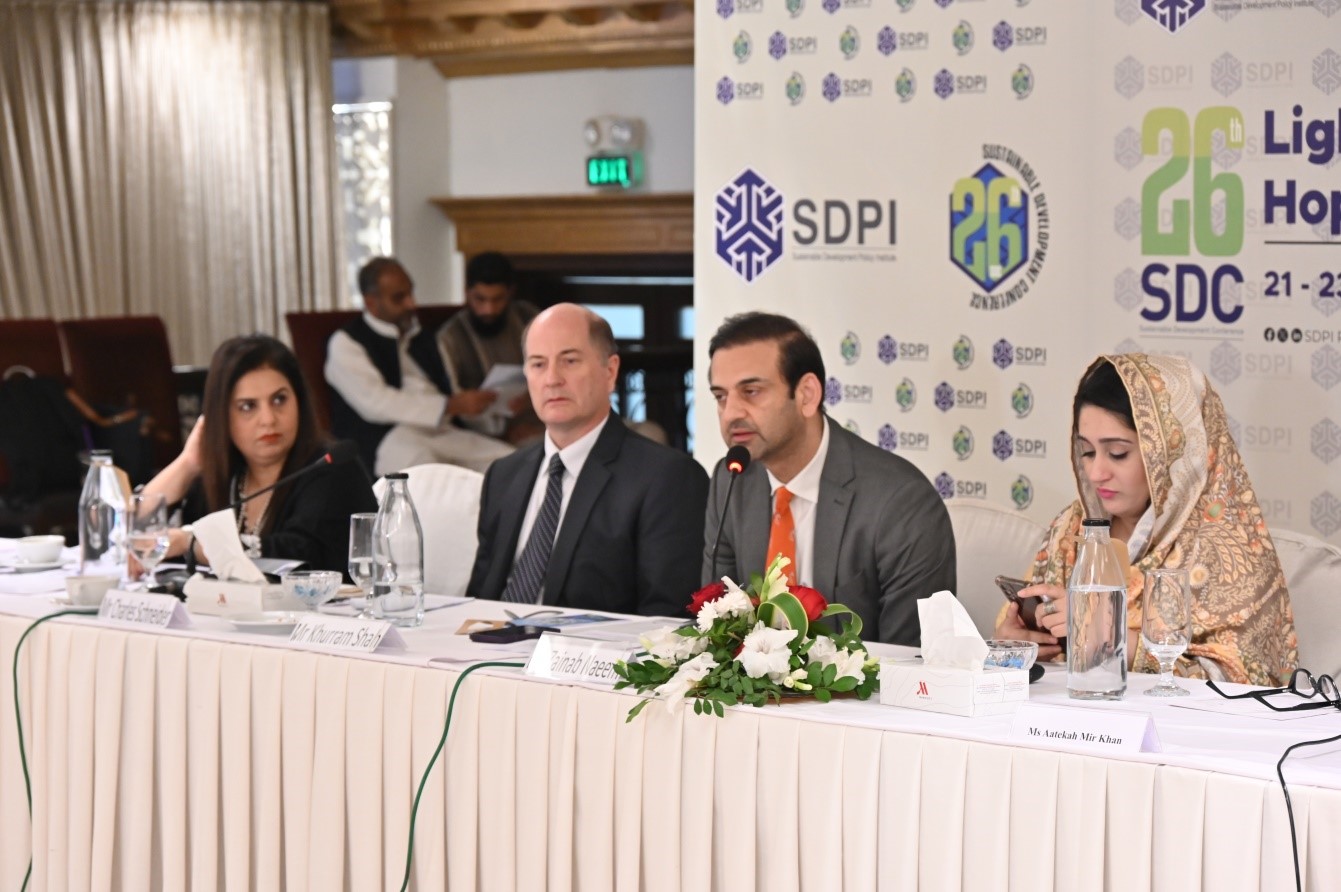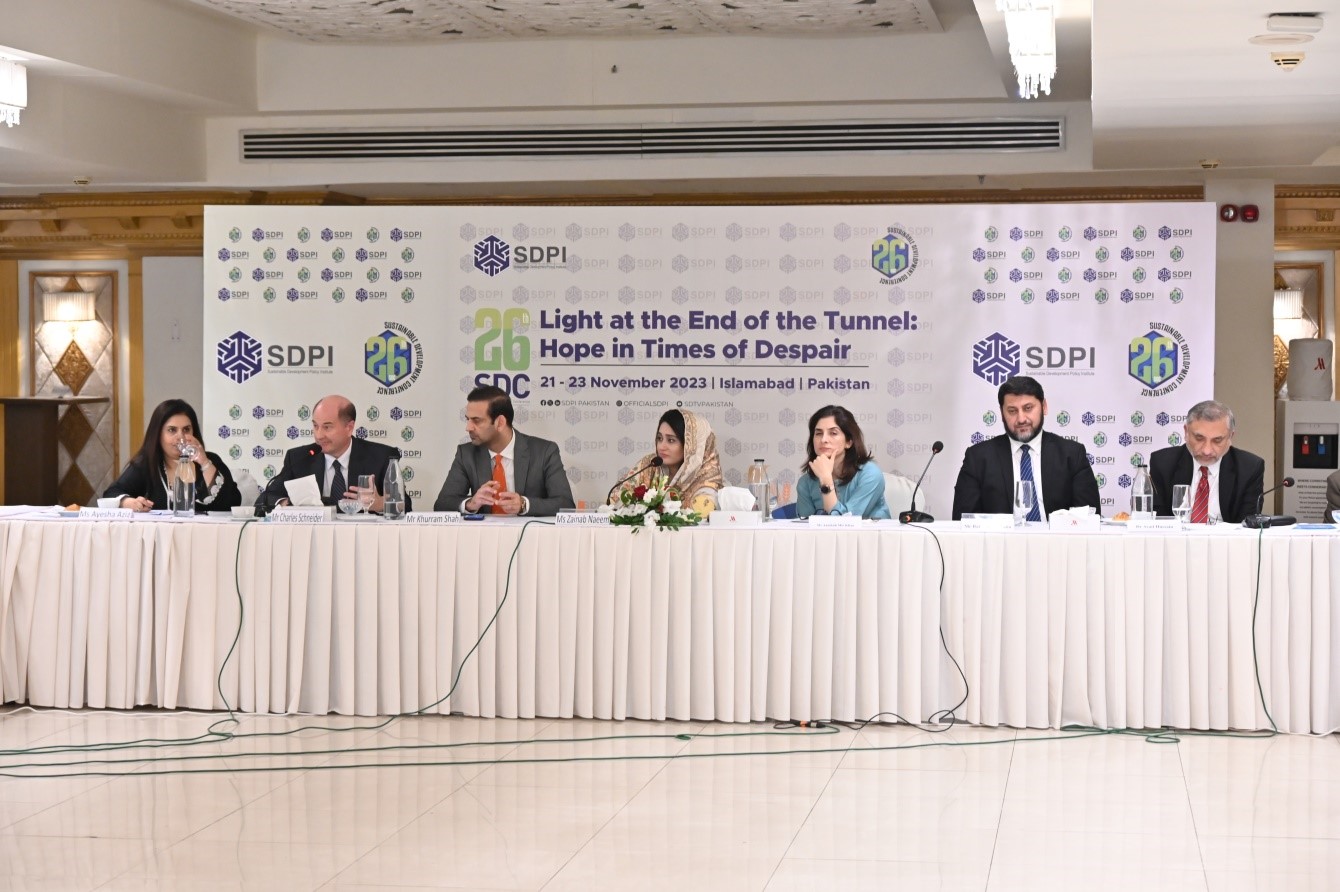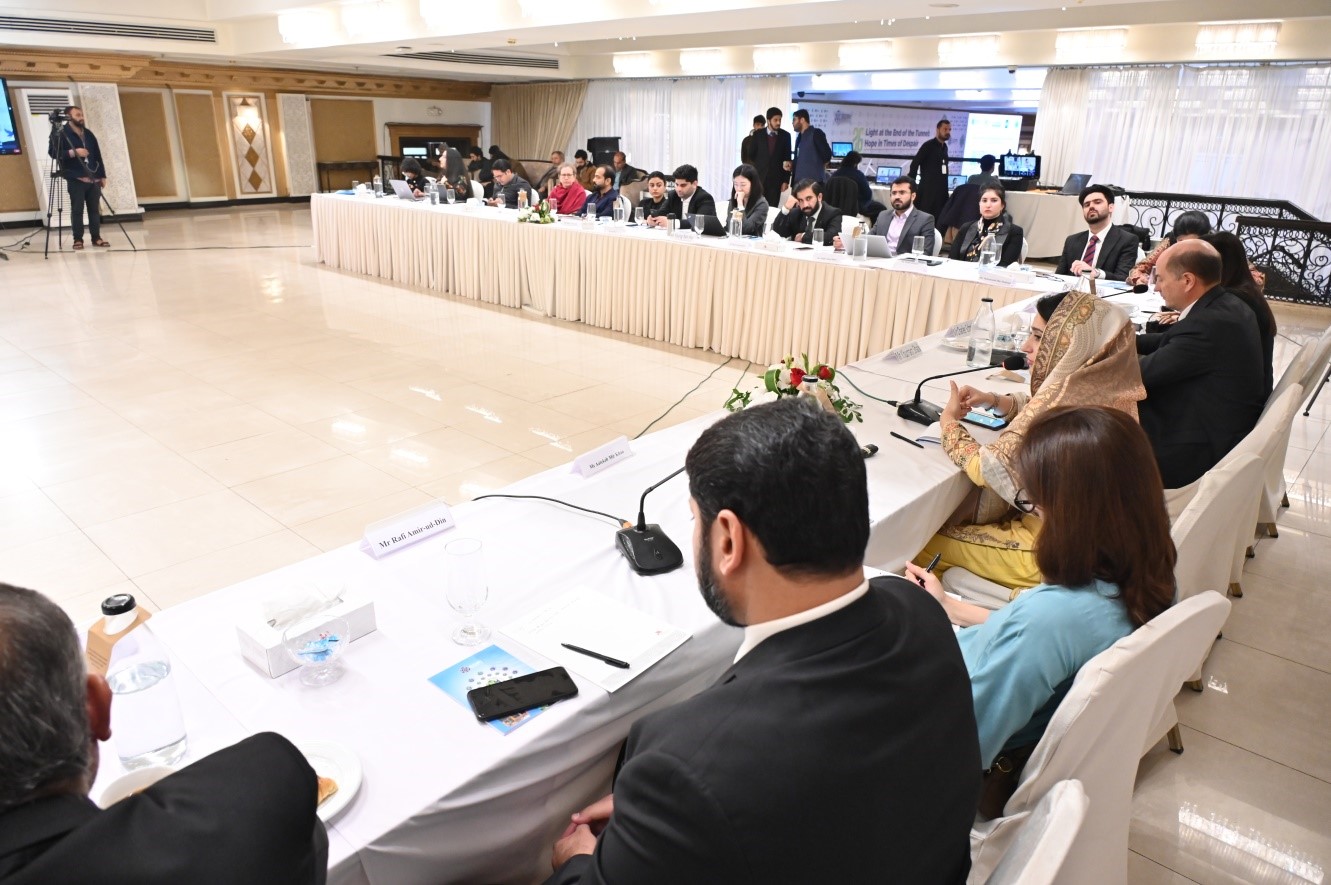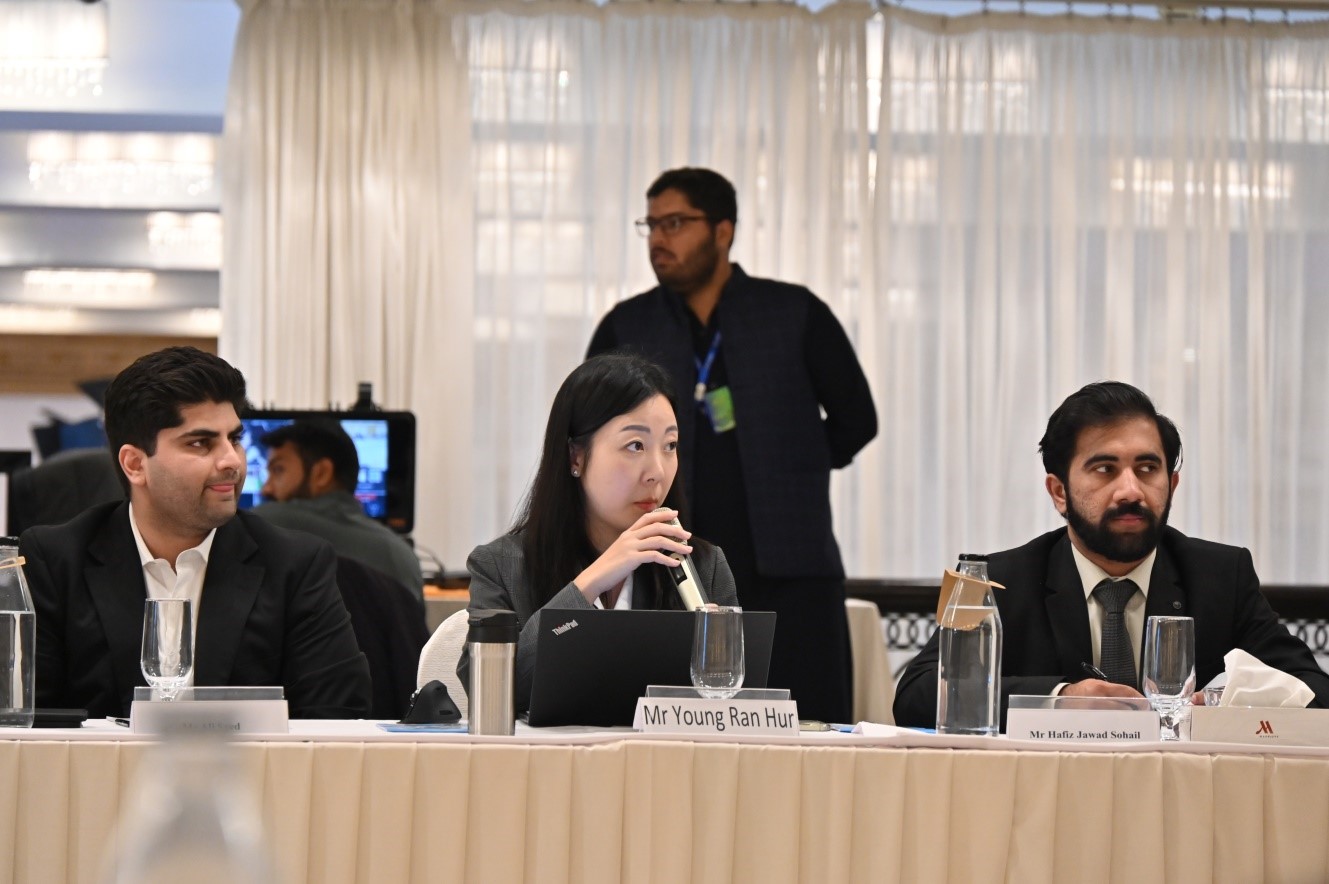Policy dialogue on “Towards Plastic Circularity in Pakistan: Solutions and Way Forward”
The call was made at a policy dialogue titled: “Towards Plastic Circularity in Pakistan: Solutions and
Way Forward” at the 26th Sustainable Development Conference, organized by Sustainable
Development Policy Institute (SDPI) in collaboration with United Nation Environment Programme
and COMSATS University Islamabad, Lahore Campus. on November 23,2023
Ms Adriana Zacarias from United Nation Environment Programme (UNEP) stressed the need for
negotiating with small and medium enterprises, private sector and industrial sector for producing the
alternate and scaling up the circularity in businesses. She reiterated the UNEP’s commitment to
continue its collaboration on plastic circularity with SDPI to eliminate the excessive use of plastic at
all levels. She further said that plastic waste is polluting mountains, oceans and agriculture lands.
Referring to a study, she said: We are eating plastic about the size of a credit card every year, posing
serious health hazards to mankind. The average use of plastic is highest in Pakistan, she said, adding
that it was producing about 3.3 million tons of plastic every year. Hoping to overcome this challenge
through circularity of plastic, she stressed to find a way to end plastic pollution by involving the
youth, and public & private sectors.
Charles Schneider from International Finance Corporation (IFC) said that plastic material worth one
billion dollars is wasted every year whereas, it has a big scope for circularity. He further said that a
study conducted by the IFC had revealed that 16 sectors, including paper, tires, glass, and batteries
have yet to tap business potential. He called upon the private sector to develop business models to
harness the potential of circularity to protect the environment as well as human beings.
Ms Ayesha Aziz from Packages Limited said that Packages industry is still manufacturing plastic
items as the demand in the local industrial sector still exists. She stressed the need to develop proper
infrastructure for the circularity of plastic waste to minimize its presence gradually and develop the
alternate to achieve the SDG targets.
Mr Khurram Shah, Director, Public Policy, Pepsi said that the company was planning to collect all its
plastic waste in the form of pets and bottles.
Muhammad bin Shahzad of Tetra Pak called for developing linkages and cooperation among
different stakeholders, including plastic waste collectors, recyclers, and industry to help eliminate the
problem and promoting the circularity. He suggested incentivizing the circularity industry on tax and
customs duties for the growth of the waste management industry, part,icularly the plastic waste.
Mr Sahib Alam of WWF said that government should play a proactive role to promote plastic
circularity and enhance financial allocation for research and development to find local sustainable
solutions to overcome the issue.
The presentation, titled "Improving the Effectiveness of Plastic Bag Ban in Pakistan," led by Dr.
Rafi Amir-ud-Din, focuses on the environmental challenges posed by plastic bags and explores
innovative strategies for enhancing compliance with plastic bag regulations in Pakistan. It addresses
the limitations of traditional enforcement methods and investigates 'nudging' as a less intrusive, cost-
efficient alternative. The research encompasses a literature review, market profiling, and data
collection on plastic bag usage in Islamabad, aiming to combine Islamic environmental stewardship
principles with secular approaches to change consumer and retailer behaviors. The study emphasizes
the need for context-specific interventions and sets the stage for further research in urban
environmental responsibility.
